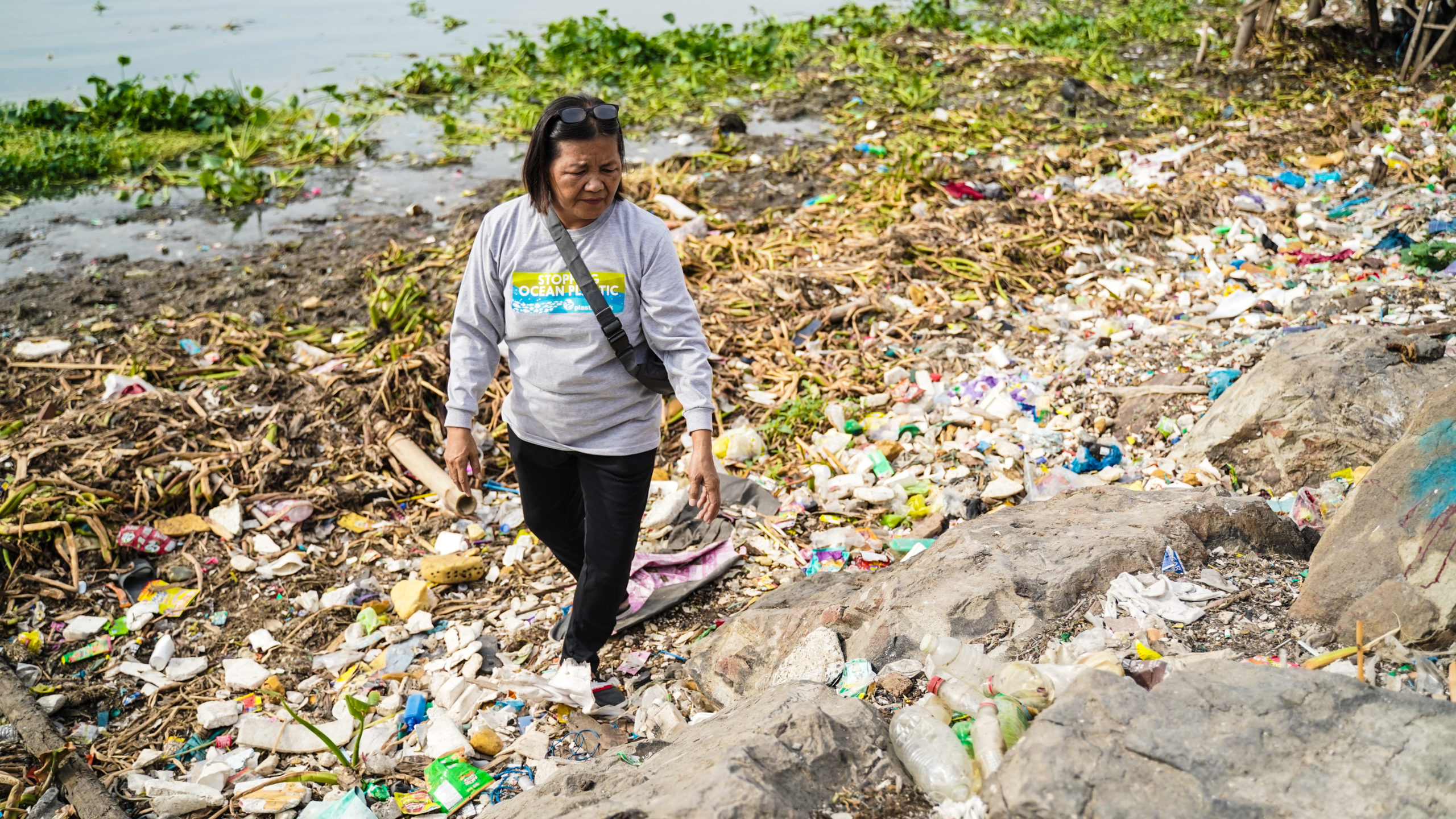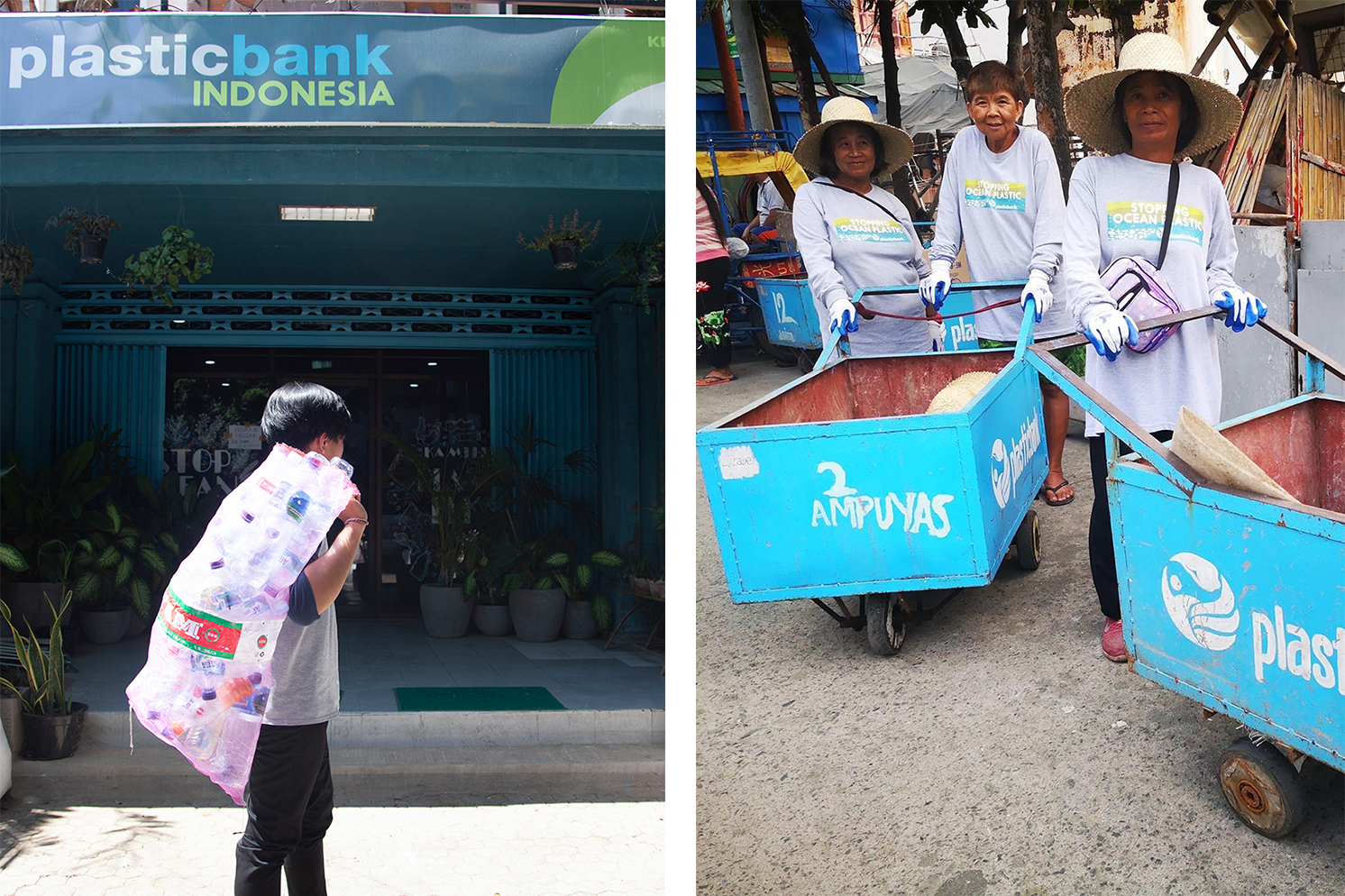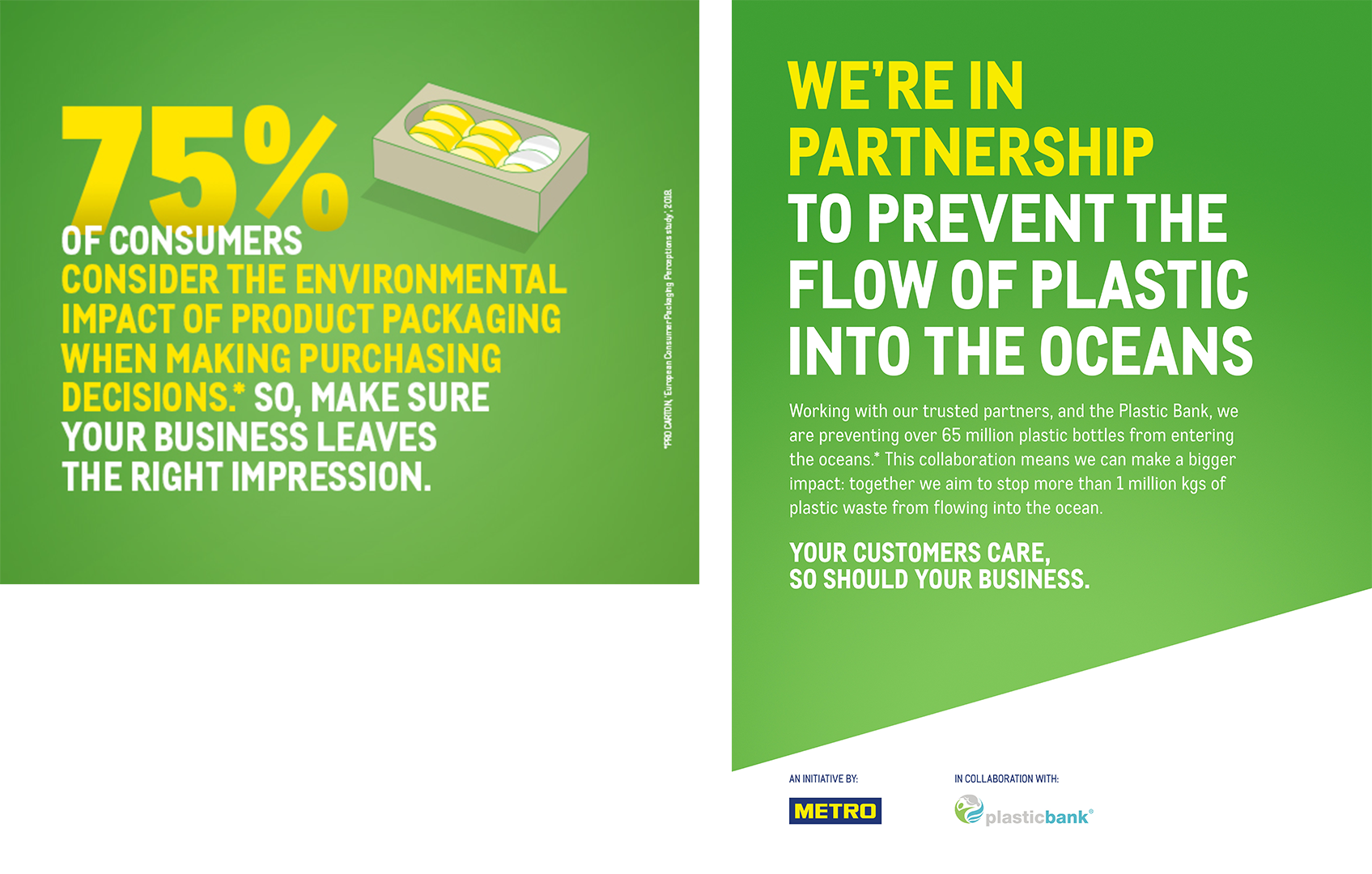One truckload of plastic waste is dumped into the oceans – every minute of every day. To tackle the plastic pollution of the oceans, we need to “turn this tap off”.
What sounds like an appeal to save water is actually a quote from David Katz, founder and CEO of the Canadian social enterprise Plastic Bank. It refers explicitly to stopping ocean plastic at its source – on land. It is estimated that 2/3 of the plastic waste in the oceans, around 8 million tons per year, come in via rivers and landways.
In less developed coastal regions, people surely worry most about food supply and neighborhood safety whereas waste collection and recycling aren’t on the daily agenda for survival. Cutting the problem off at its source is therefore key to countering the seemingly unstoppable flood of plastic into the oceans. Founded in 2013, David and his team from Plastic Bank started turning plastic into a currency for the ultra-poor. Those who collect discarded plastic can drop it off at their local Plastic Bank where it is sorted, weighed, and paid with a premium. The earned money is credited to the collectors’ online account which keeps it safe from theft and can be used to pay for essentials like food, school tuition or clothing. The collected plastic itself is recycled by Plastic Bank as Social Plastic®. In April 2021, the efforts of Plastic Bank stopped the billionth plastic bottle on its way to the sea while supporting many people in Haiti, Brazil, Indonesia, the Philippines, and Egypt to improve their lives.
How METRO comes in
With the launch of the METRO Plastic Initiative, we are the first international wholesale specialist to launch a multi-year partnership with Plastic Bank, selected suppliers, and our 16 million customers worldwide.
With the METRO Plastic Initiative, we want to contribute to sustainable change on two levels:
- Together with Plastic Bank, we aim to keep at least 65 million plastic bottles per year out of the oceans – the equivalent of 1.3 million kilos of plastic waste. At the same time, we are supporting impoverished communities in coastal regions. To this end, we are launching a recurring promotional campaign in 24 METRO countries, supported by selected suppliers including Bolton, PepsiCo, Reckitt Health and Reckitt Hygiene & Home, SC Johnson, Unilever Retail and Unilever Professional by Diversey, GSK, Nestle Professional, P&G, Essity, Fromagerie Bel, Henkel Laundry Care and Henkel Beauty Care, Coca-Cola Europacific Partners, Coca-Cola HBC as well as Danone. We are actively contributing to the promo campaign with our own brand assortment. Customers will find a spotlight on products with improved plastic packaging. With the purchase of these products, METRO, the participating suppliers, and our professional customers financially support the work of the Plastic Bank on the ground. To ensure maximum transparency, the progress of the METRO Plastic Initiative can be tracked online via Plastic Bank’s Alchemy™ blockchain platform.
- During the promo campaign, we also bring the topic of plastic packaging even closer to our customers. Using an omni-channel approach and their shopping experience in our markets, we show them how smart changes in inevitable packaging can for example significantly reduce the use of virgin plastic. This also includes helping our customers understand how they themselves can help to close the loop with better recycling.
For the METRO Plastic Initiative, we have been able to win over suppliers who, like ourselves, are pursuing ambitious plastic reduction strategies. At METRO, the Technical Packaging Team for our own brand assortment has been working since 2014 with 17 METRO countries on an ambitious 3R (Reduce – Reuse – Recycle) strategy, eliminating hundreds of tons of packaging material since then. In 2018, METRO committed to the Ellen MacArthur Foundation’s New Plastics Economy with the goal to save an additional 300 tons of plastic packaging by 2023. By eliminating unnecessary layers and replacing materials or redesigning containers, METRO has already achieved to cut an additional 491 tons of plastic packaging by the end of fiscal year 2019/20, exceeding the target ahead of schedule. We also welcome the Consumer Goods Forum’s Plastic Waste Coalition’s work on the Golden Design Rules for plastic packaging which focuses on reducing the complexity of the recycling process and increasing overall recycling rates by for example eliminating problematic packaging elements like carbon black, EPS and PVC.
We are very excited to start this journey with a very strong and dedicated network. Together with Plastic Bank, our customers, and suppliers, we will make a sustainable difference for the planet and future generations in our METRO countries as well as in vulnerable coastal communities, jointly contributing to the UN 2030 Agenda. Because only together we can make sustainable change happen at scale.



